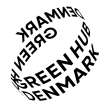
Scaling up PED strategies through learnig and action alliances
WP5 will take further the co-creation approach applied in Living Labs for neighbourhood strategy making (done in WP4) to develop a Learning and Action Alliance (LAA) for each partner city, as an environment where key agents of change can gather to co-define and co-create transformative strategies and transition pathways for PED-oriented urban regeneration at the city scale.
Transition management will be used as methodological approach to support the activities. Appropriate tools will be co-constructed to strengthen the synergies between urban regeneration and wider urban strategies for sustainability transition in the framework of energy and urban justice, as well as the capacity to reach out other cities through a snowballing process, thus contributing to a faster pathway to climate-neutral cities.
Tasks
- T5.1 Development of a Learning and Action Alliance in each city.
- T5.2 Development of guidelines for replicability and large-scale implementation of PED transition in disadvantaged neighbourhoods. They will encompass due consideration of synergies between neighbourhood strategies developed in WP4 and wider urban spatial strategies for sustainability transition (encompassing public and private interventions, process design, governance frameworks and policy instrument mixes)
- T5.3 Development of an assessment framework as well as a monitoring tool for ongoing and ex-post assessment of PED-oriented urban regeneration, based on key indicators for effectiveness and efficacy of PED transition in disadvantaged neighbourhoods, including social impact, cost-effectiveness of measures and equity access to benefits
Deliverables
- D5.1 Guidelines for advanced replication
- D5.2 Assessment framework and monitoring tools for ongoing and ex-post assessment of PED-oriented urban regeneration strategies
Milestones
- M5.1 Learning and Action Alliance established in each partner city
- M5.2 Key indicators selected for assessment framework and monitoring tool

